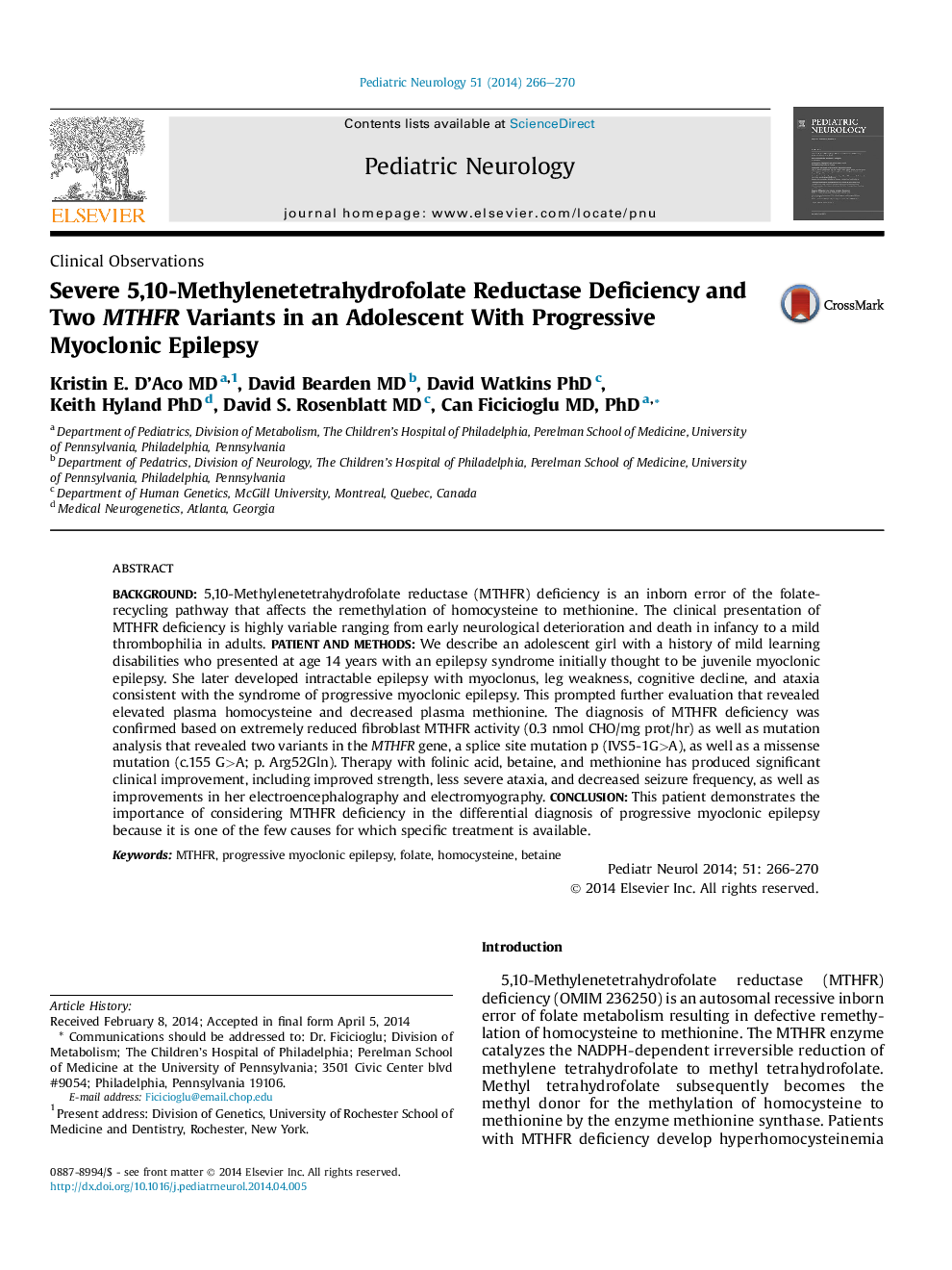| Article ID | Journal | Published Year | Pages | File Type |
|---|---|---|---|---|
| 3084832 | Pediatric Neurology | 2014 | 5 Pages |
Background5,10-Methylenetetrahydrofolate reductase (MTHFR) deficiency is an inborn error of the folate-recycling pathway that affects the remethylation of homocysteine to methionine. The clinical presentation of MTHFR deficiency is highly variable ranging from early neurological deterioration and death in infancy to a mild thrombophilia in adults.Patient and MethodsWe describe an adolescent girl with a history of mild learning disabilities who presented at age 14 years with an epilepsy syndrome initially thought to be juvenile myoclonic epilepsy. She later developed intractable epilepsy with myoclonus, leg weakness, cognitive decline, and ataxia consistent with the syndrome of progressive myoclonic epilepsy. This prompted further evaluation that revealed elevated plasma homocysteine and decreased plasma methionine. The diagnosis of MTHFR deficiency was confirmed based on extremely reduced fibroblast MTHFR activity (0.3 nmol CHO/mg prot/hr) as well as mutation analysis that revealed two variants in the MTHFR gene, a splice site mutation p (IVS5-1G>A), as well as a missense mutation (c.155 G>A; p. Arg52Gln). Therapy with folinic acid, betaine, and methionine has produced significant clinical improvement, including improved strength, less severe ataxia, and decreased seizure frequency, as well as improvements in her electroencephalography and electromyography.ConclusionThis patient demonstrates the importance of considering MTHFR deficiency in the differential diagnosis of progressive myoclonic epilepsy because it is one of the few causes for which specific treatment is available.
